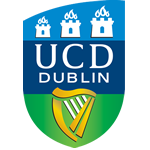A bronchoscopy is a procedure that enables the doctor to examine the trachea, bronchi and lungs.
A short, thin, flexible tube/scope containing a light and camera inside is passed through the nose or mouth into the bronchi and lungs.
The procedure can take up to 20 minutes. Biopsies and fluid samples may be taken if necessary. This will cause you no pain.
What are the risks?
Complications of this procedure are rare but can include a punctured lung (pnuemothorax), haemorrhage (bleeding) or reactions to medications. These complications may require urgent medical attention or even surgical intervention and can carry risks to life and health.
Medication and tablets
You may continue to take essential medication but if you are taking anticoagulants (blood thinners) such as warfarin or plavix you should receive/seek special advice from the doctor when the test is being organised. If you have diabetes you should contact us for advice before you attend for your test.
Preparing for the examination
- The scheduling of your test is an approximate estimate only and unfortunately there can be unforeseen delays.
- Food may be taken up to six hours prior to admission
- Water may be taken up to two hours prior to admission
- If you have a referral letter from your doctor, present this to the secretary on arrival
- Bring details of private medical insurance and contact your insurance company prior to admission to confirm your level of cover
- You will have sedation for this procedure and must be collected on discharge. You will not be allowed to drive home and you must be accompanied home
- Bring a list of current medication
- Do not bring jewellery or large sums of money
- If you are under 16 years you must be accompanied by your parent or guardian who is required to give written consent
During the examination
- A nurse will be with you at all times
- You will be asked to lie flat
- You will be asked to remove any dentures and a plastic mouth guard will be placed between your teeth to prevent you from biting the scope
- A throat spray and/or nasal gel will be given to numb your throat and airways
- An intravenous injection (sedation and a pain-relieving medication) is given into the vein to make you feel relaxed and sleepy but not unconscious. This is not a general anaesthetic
- Once you are relaxed and sleepy the procedure will commence You will receive nasal oxygen throughout the procedure and a monitor will be placed on your finger to assess your pulse and oxygen levels
- The doctor passes the scope into the mouth, down the back of the throat and into the airways.
- This may cause you to cough during the procedure
- The doctor may obtain tissue samples for biopsy and/or other specimens for testing during the procedure
Special Requirements
If you use a wheelchair or have a physical or any other disability please contact us to let us know in advance so that we can ensure you receive the appropriate supports.
Following the examination
- Further tests may be requested by the consultant. These tests may be completed on the same day of your examination or a future date will be given.
- As you have received sedation you will be observed in the day ward until the effects of the sedation have worn off. The intravenous cannula will be removed from your arm before you go home
- When you have sufficiently recovered you will receive a light snack.



